Organic farming
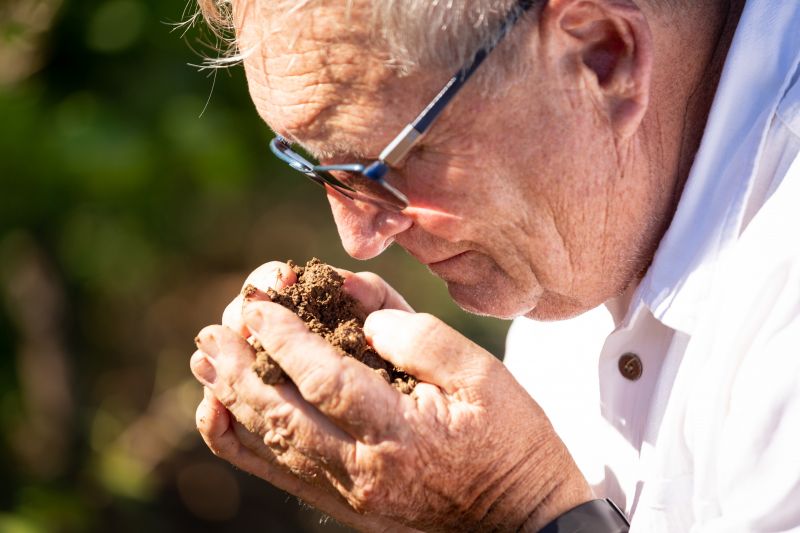
Where man and nature are respected
The 62 hectares of the estate receive constant attention. The organic vineyard since 2001 is run with the greatest respect for biodiversity.
Organic and biodynamic working of the soil allows the joint development of a surface-rich micro-fauna and a host of microorganisms in the soil. The latter are capable of ensuring soil fertility, combating soil damage, erosion and drought. They can restore fertility and stability to any damaged soil, as they make available to the plant all the soil minerals that have been blocked by years of conventional agriculture.
The soil is fertile, the vines are strong and the grapes are healthy.
This hard work ensures the sustainability of this natural and cultural heritage.
This commitment allows us to honour with humility and dignity our responsibility as farmers towards future generations.

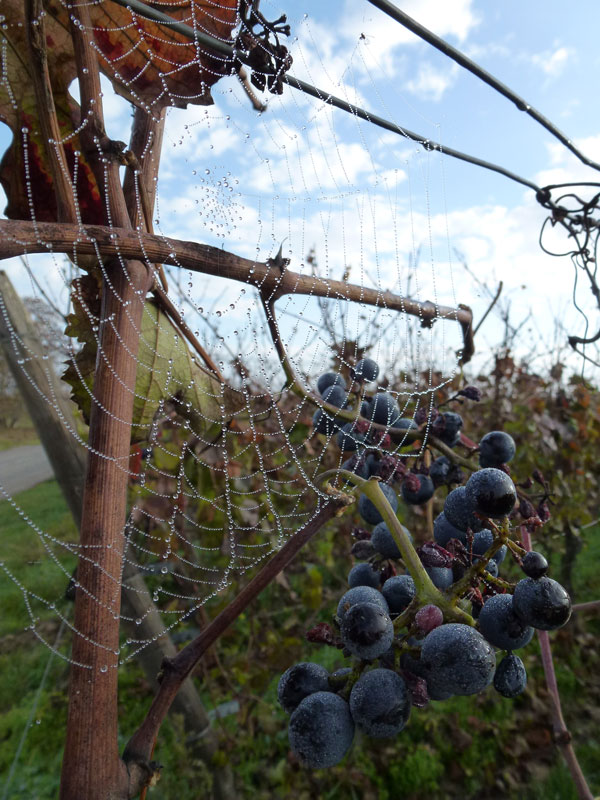
Organic viticulture

This logo is applied to vintages prior to 2012, it refers to wines made from organic grapes.
Organic farming brings with it the concept of respect for the living environment. Wine-growers undertake not to use chemical fertilizers, herbicides or synthetic chemicals in the cultivation of their vines. This method of vineyard management aims to re-establish and respect the balance of nature in order to strengthen the plant’s natural defences.
Regulated and monitored by ECOCERT (Limited company based in 31-Toulouse)
 This logo concerns wines produced from the 2012 vintage onwards.
This logo concerns wines produced from the 2012 vintage onwards.
Since 2012, winemaking has also been regulated. The new European 'Organic Wine' specification defines the conditions governing organic wine production. Among the set of rules put in place, we can mention in particular the restriction of inputs and the reduction of sulphites.

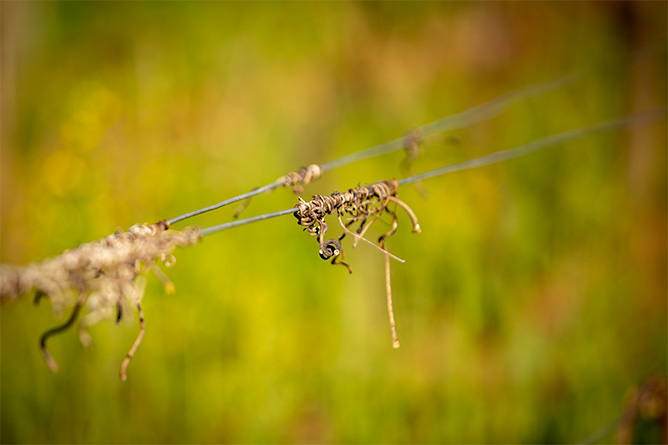
Biodynamics
This method takes things one step further than organic farming (it is a Rudolf Steiner theory - Rudolf Steiner being the founder of the philosophy of anthroposophy at the beginning of the 20th century).
It is based on a system of thought that seeks to take into account the full range of interactions between the earth, water, plant-life, air, fauna and flora.
It places particular emphasis on the nature of the soil and cosmic influences. To the concept of substance, it adds the concept of force, to that of analysis, the concepts of holism and coherence and to that of quantity, the concept of quality is added.
It centres around the use of animal, vegetable or mineral-based preparations at specific times in order to care for the soil and the vines.
Its aims are to :
- Care for the planet
- Regenerate and keep the countryside healthy
- Feed mankind using healthy methods
- Encourage individuals’ inner development

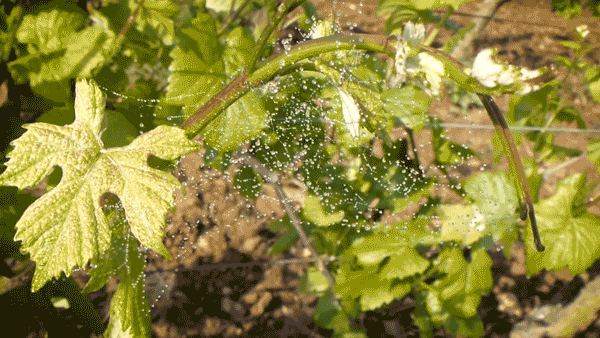
Organic viticulture on the estate
• A process of constant monitoring
Constant observation of the vine in its environment and a strict monitoring of weather conditions are crucial in organic farming, the aim being to favour preventive rather than curative action. The installation of a weather station containing plant disease prediction models for the 2 major diseases that affect vines means action can be taken where most needed.
Understanding the vine is essential to lavish the most appropriate care on it.

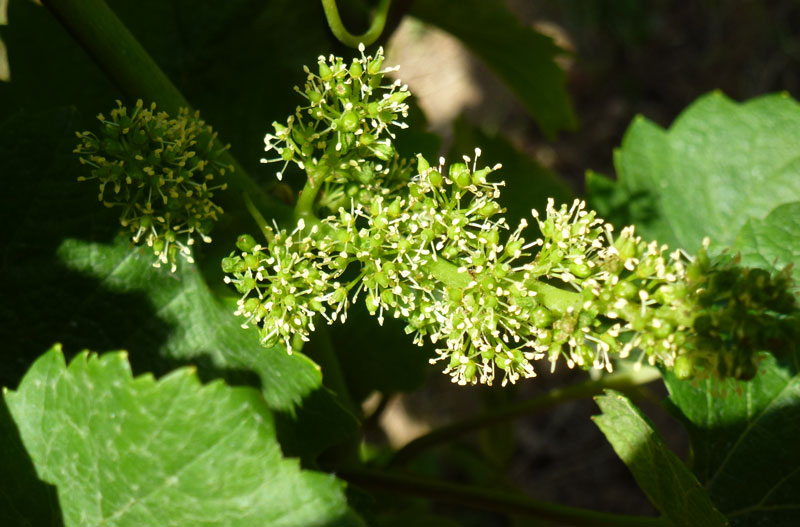
• Sowing additional plants in the vineyard
Before the vine is planted, the ground must have a long fallow period. Then the ground is sown with plants with nematicidal properties (nematodes = roundworms that infect plants with the grapevine fanleaf virus).
In this manner the soil is renewed in a perfectly natural way. Bernard also sows plants between the rows of vines. Certain species are used to improve the soil’s structure and ensure a thriving micro-fauna, others are used as nitrogen supplements.
• Methods of fertilisation
On thinner soils, the sowing of plants is supplemented by spreading « organic » compost produced by the estate itself. This compost is made from cattle and horse manure. This material’s fermentation process is helped by adding biodynamic preparations.
The shredding of vine shoots and branches in the Winter and the spraying of a preparation of dung contained in a cow’s horn also help recycle the vine’s own goodness and constituent parts back into the plant.

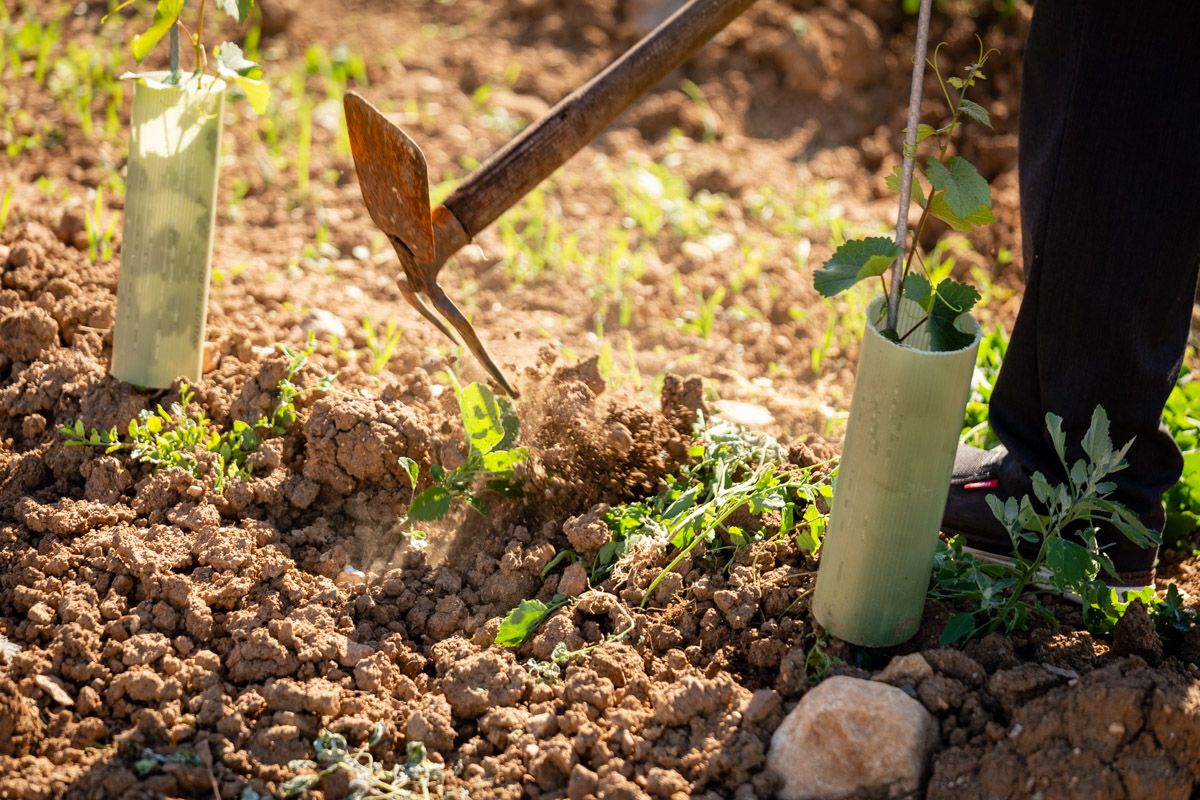
• Ploughing
To aerate the soil and promote life in the soil, it is grafted several times. Ploughing is the only method used in organic farming to remove weeds. The passage of the plough and the use of inter-vine hoes generally enables us to pull out most plants that compete with the vines. However, for some vines, we have to use a pickaxe. Ploughing also helps bring the qualities of the terroir to the fore. By getting rid of shallow roots, the root system will descend right down to the bed rock and draw up all its goodness.
• Disease and pest control using plants
The treatments are only based on contact products (sulphur, Bordeaux mixture,...) to avoid any residue in the wines. They are supplemented with the spraying of herbal teas or decoctions of plants (nettle, horsetail, camomile,...) which make it possible to reinforce the vine, to fight against the parasites and produce beautiful fruit.
Every year, we test new combinations of plants and we’re often left amazed at the incredible things that nature can achieve on its own.

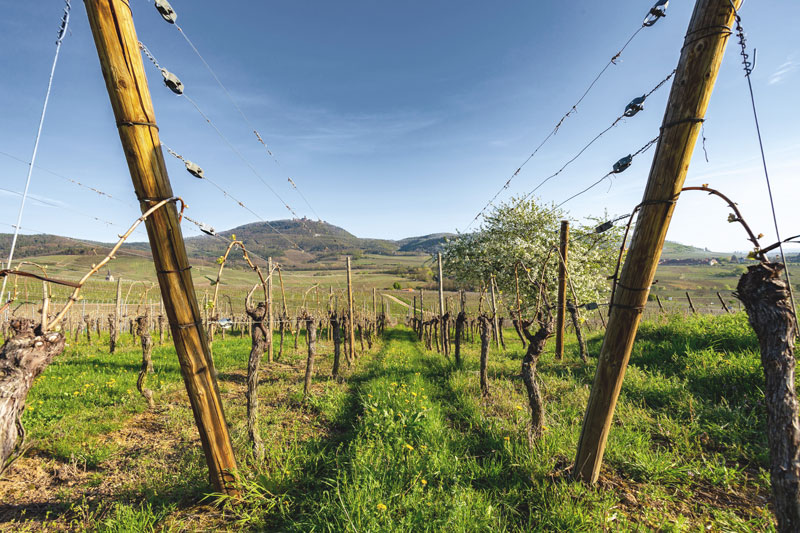
• Monitoring the Lunar calendar and the sowing calendar
The earth’s organic processes repeat themselves in « time » and as part of a regular cycle. This is partly due to cosmic influences. We acknowledge the effects caused by the earth’s rotation or the influence of the moon, for example. And yet, other planets have their influence as well. To influence weather conditions, the planets use the four elements : fire, earth, air-light and water as channels towards the Earth.
In practice, there is no need for specialist knowledge of astronomy in order to take these influences and their effects on our vines and wines into account. It’s enough to simply keep a check on the lunar calendar and the sowing calendar (published annually by the "Mouvement de culture biodynamique").
